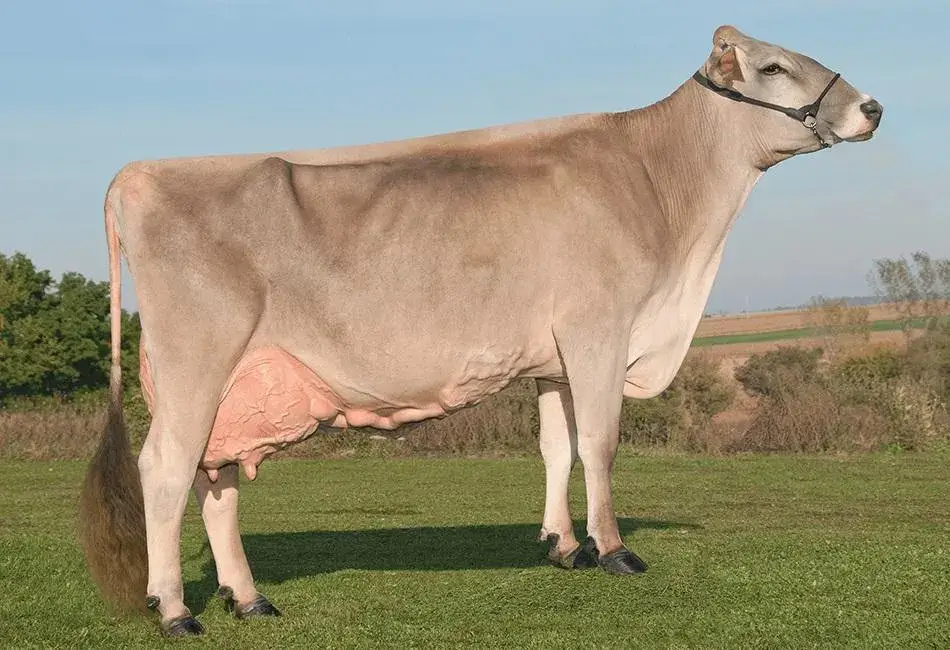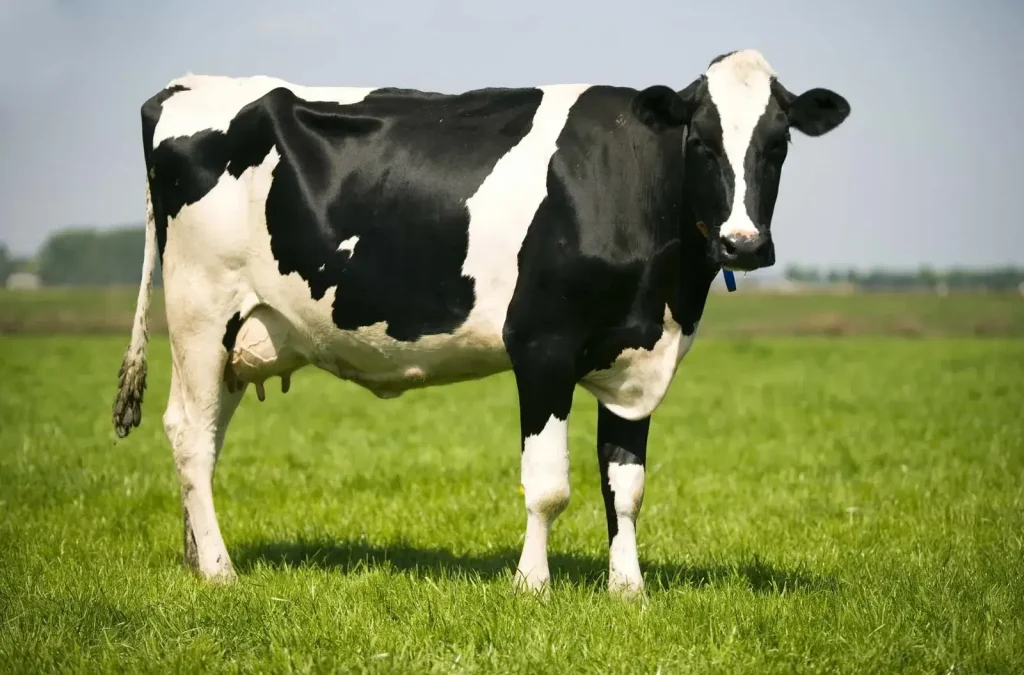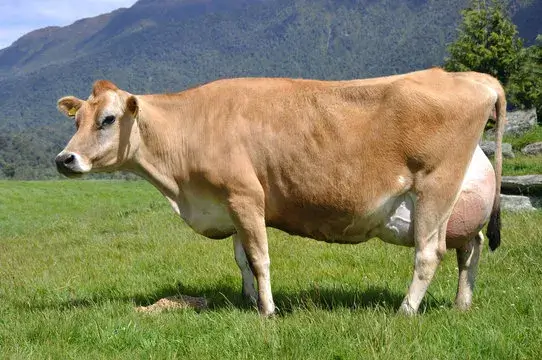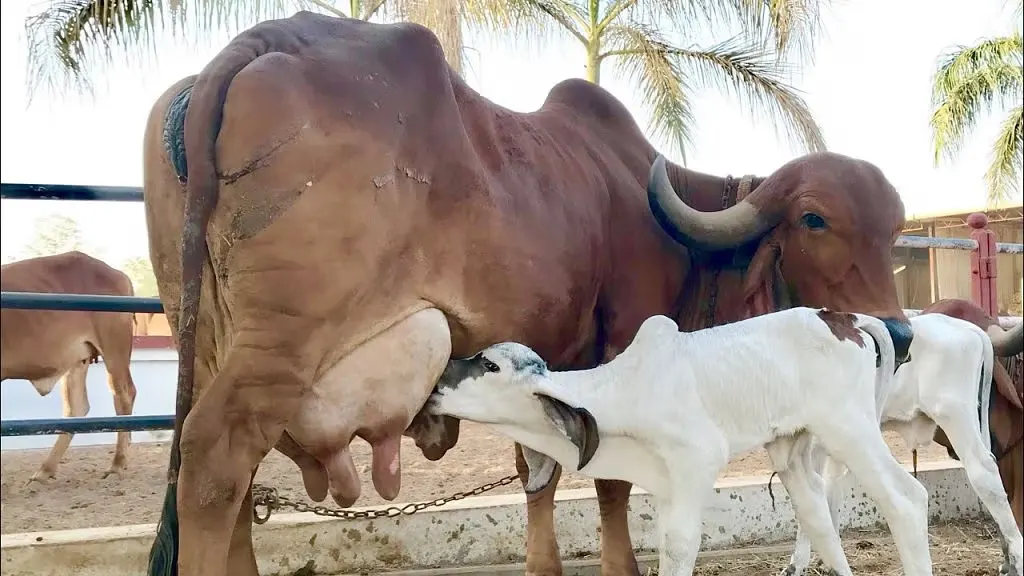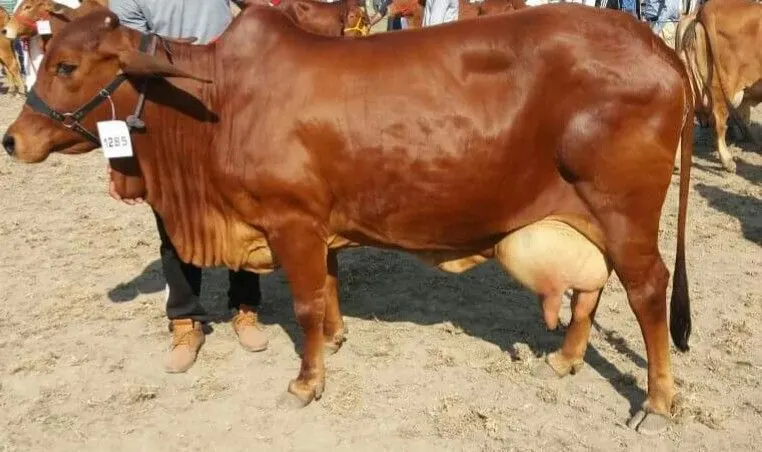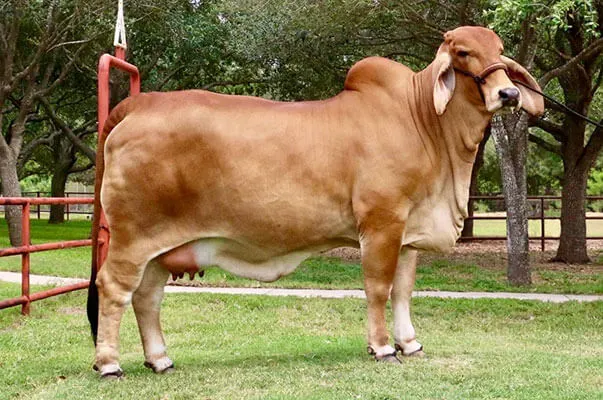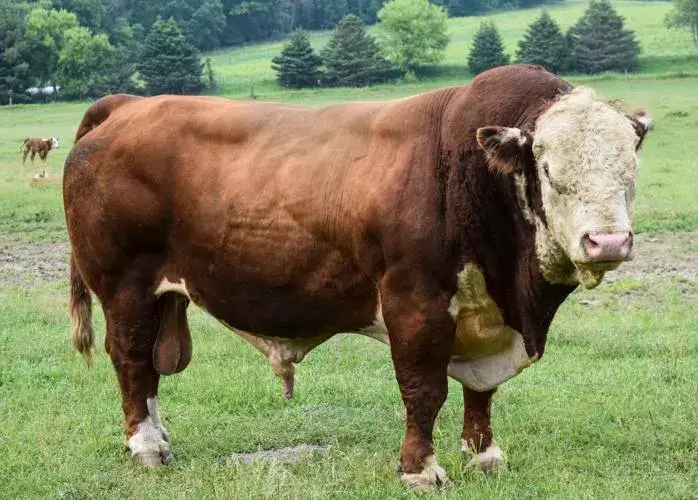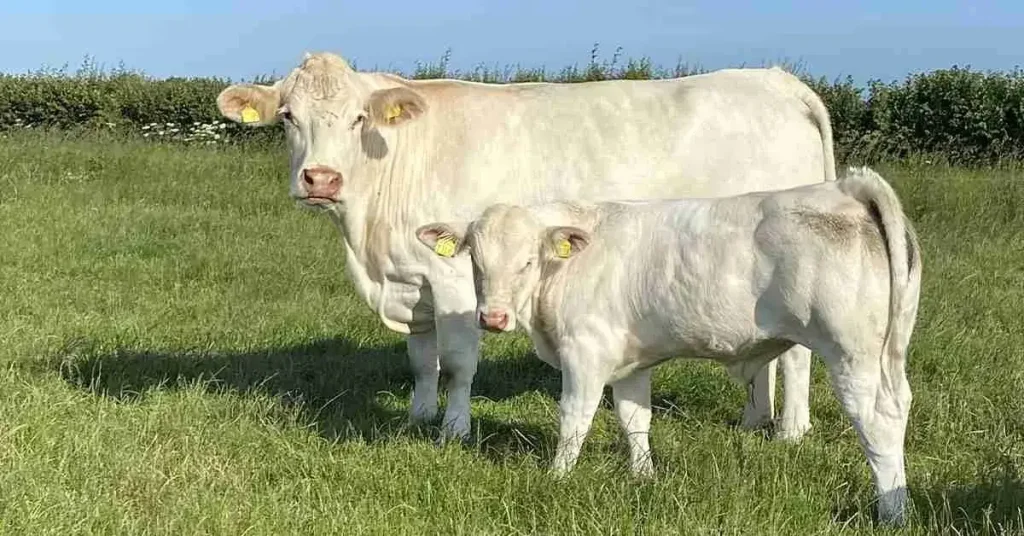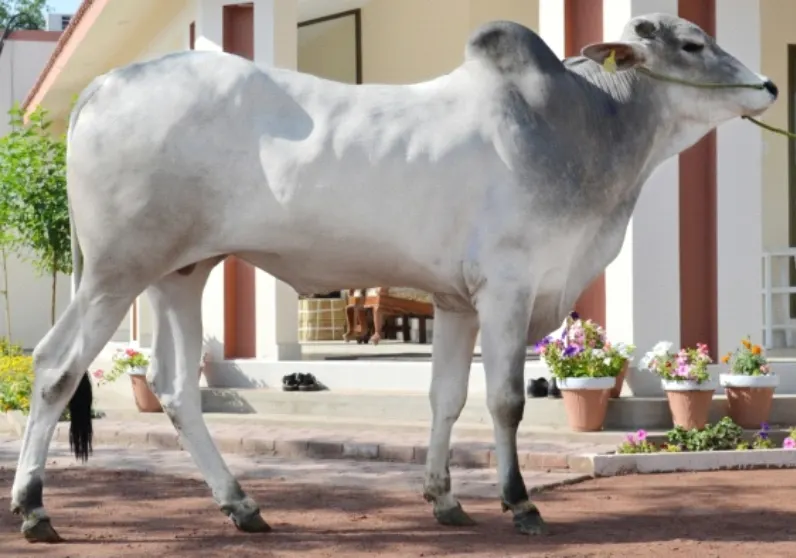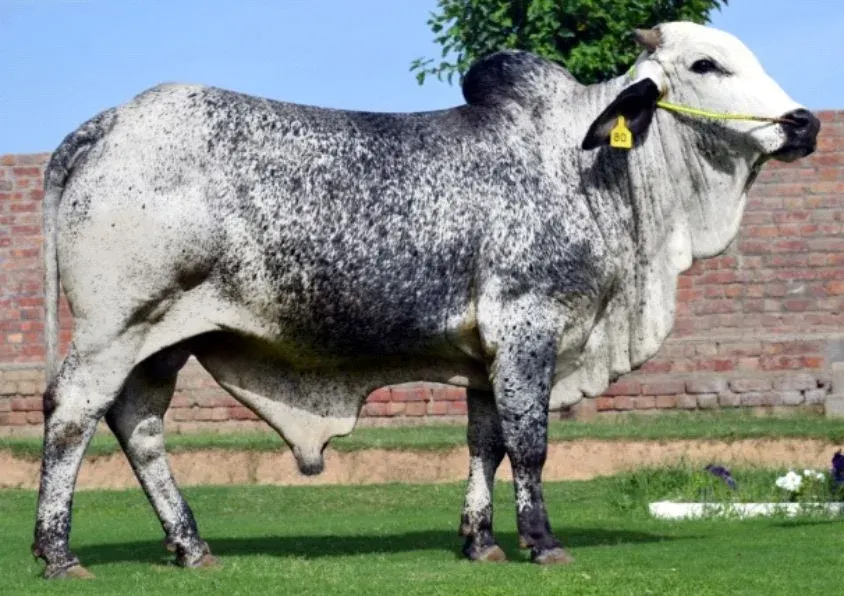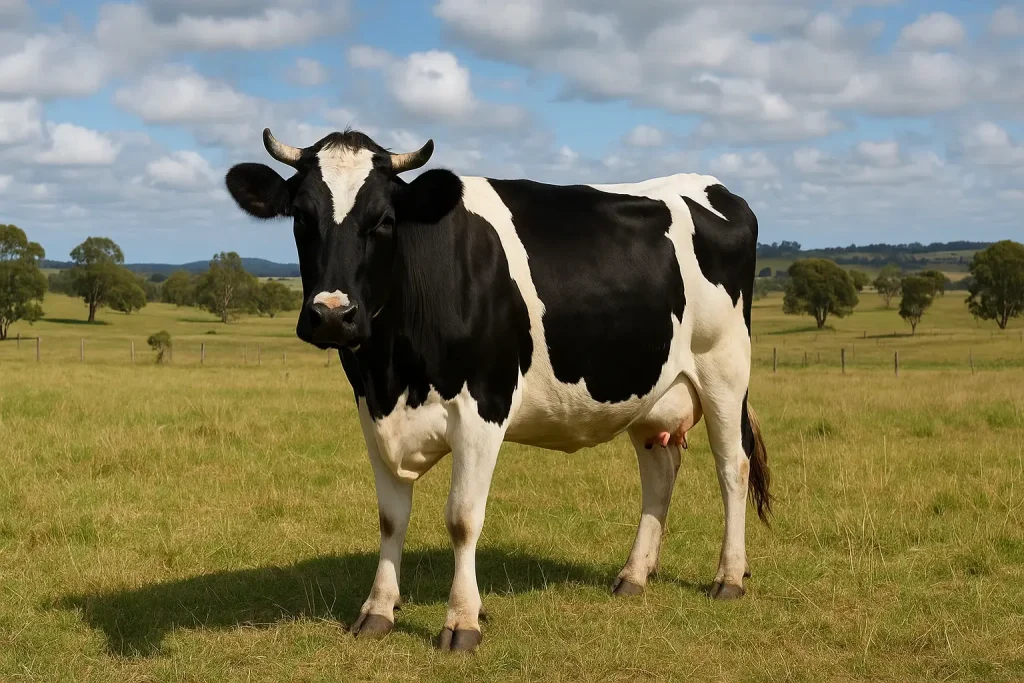🐄 Brown Swiss Cow: The Gentle Dairy Giant of the Alps
🌍 Origin and History of the Brown Swiss Cow
The Brown Swiss cow, also known as Braunvieh in German, hails from the beautiful mountainous regions of Switzerland. This breed has a rich history, dating back over 1,000 years, making it one of the oldest and most resilient dairy breeds in the world. Swiss monks initially bred them for both milk and work, and over the centuries, the Brown Swiss has spread across the globe, especially in Europe and North America.
🥛 Milk Production: Rich, Creamy, and Consistent
The Brown Swiss is renowned for its exceptional milk quality. While it may not produce quite as much volume as the Holstein, its milk has higher levels of protein and butterfat, making it ideal for cheese production. A healthy Brown Swiss cow can produce around 9,000 to 12,000 liters of milk annually. Its milk is also known for being more digestible due to the structure of its casein proteins.
🐂 Physical Characteristics of the Brown Swiss
Brown Swiss cows are known for their massive size, strength, and appealing appearance. They typically have a light brown to greyish coat, large ears, a broad muzzle, and dark eyes with a gentle expression. Their hooves are tough and dark, making them suitable for rugged terrains. Adult cows weigh between 600–700 kg, while bulls can exceed 1,000 kg.
💪 Temperament and Adaptability
One of the most loved traits of the Brown Swiss is its docile temperament. These cows are easy to manage, friendly with handlers, and rarely aggressive. This temperament, combined with their strong legs and hooves, makes them incredibly adaptable to different climates, from cold alpine pastures to hot and humid environments.
🌾 Feeding and Care Needs
Brown Swiss cows thrive on a diet rich in roughage, grains, and high-quality forage. They require clean water, ample grazing time, and comfortable shelter to stay productive. Due to their large frame, they need more feed compared to smaller dairy breeds, but their feed-to-milk conversion is efficient, especially for cheese production.
🌍 Global Popularity and Distribution
Today, the Brown Swiss is found in over 60 countries. It is especially popular in the United States, Germany, Brazil, and Italy, where it’s valued for both commercial and traditional dairy farming. Its durability and performance make it a reliable choice for farmers seeking longevity and quality milk.
🧀 Best for Cheese Lovers
If you’re a cheese enthusiast, Brown Swiss milk is your best friend. It is perfect for crafting high-quality cheeses such as Emmental, Gruyère, and Swiss cheese due to its excellent casein content. This makes the breed highly valuable in regions where artisanal cheese-making is a tradition.
📊 Brown Swiss vs. Other Dairy Breeds
- Vs. Holstein: Lower milk yield, but higher fat and protein content.
- Vs. Jersey: More milk, slightly less butterfat, and larger size.
- Vs. Guernsey: Similar temperament but more adaptable and sturdy.
📈 Economic Benefits for Farmers
Thanks to their longevity, strong fertility, and fewer health problems, Brown Swiss cows provide an excellent return on investment. They have a longer productive life compared to many other dairy breeds, meaning farmers save on replacement and veterinary costs.
🔄 Sustainability and Environmental Impact
Brown Swiss cows are also more eco-friendly in terms of methane output per unit of protein-rich milk. Their ability to convert diverse forages into milk helps in reducing reliance on grain-based feed, making them a greener dairy option.
❤️ Why Choose the Brown Swiss Cow?
Whether you’re a small dairy farmer or part of a large cooperative, the Brown Swiss cow offers a perfect balance of temperament, productivity, and milk quality. Their sturdy build, gentle nature, and impressive dairy record make them a favorite across the world.
❓ FAQs about Brown Swiss Cows
What makes Brown Swiss milk good for cheese?
Brown Swiss milk contains a high percentage of casein, the protein responsible for curdling milk during cheese production, making it ideal for high-quality cheese.
How long do Brown Swiss cows live?
On average, they live around 10–12 years, with many continuing to produce milk effectively until old age.
Are Brown Swiss cows good for beginner farmers?
Absolutely! Their gentle demeanor and ease of handling make them a great choice for new or small-scale dairy farmers.
Can Brown Swiss cows handle hot climates?
Yes, their strong hooves and adaptable physiology allow them to perform well even in hot, humid regions with proper care.
🏁 Final Thoughts
The Brown Swiss cow stands out as one of the most dependable and productive dairy breeds globally. If you’re looking for a cow that offers longevity, creamy milk, and a gentle personality, this Swiss marvel is an unbeatable choice. 🐄🥛
Gir Cow
🐄 Brown Swiss Cow for Sale
The Brown Swiss is one of the oldest and most respected dairy cattle breeds in the world, originating from the Swiss Alps over 1,000 years ago. Known for its large size, gentle temperament, and exceptional milk production with high butterfat content, the Brown Swiss thrives in diverse climates and is prized for both dairy and beef qualities (en.wikipedia.org, University of Kentucky).
